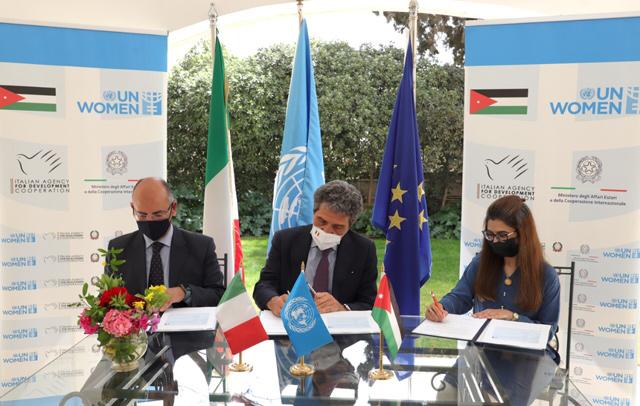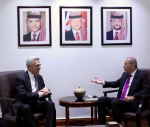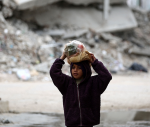You are here
UNDP, Italy sign 1.5m-euro agreement on refugee, host-community livelihoods
By JT - Jul 01,2020 - Last updated at Jul 01,2020

The project ‘Enhancing Self Reliance and Inclusion Prospects for Displaced-Affected Communities’ in Amman seeks to stimulate local economic revitalisation and job creation in the neighbourhoods of downtown Amman (JT file photo)
AMMAN — The Italian Government and the United Nations Development Programme (UNDP) on Wednesday signed a project agreement aimed at supporting the economic sector and boosting livelihood opportunities for vulnerable communities in Jordan.
The project, titled “Enhancing Self Reliance and Inclusion Prospects for Displaced-Affected Communities [Iraqi and Host Communities] in Amman”, is funded by the Government of Italy, according to a joint statement. It aims to stimulate local economic revitalisation and job creation in the neighbourhoods of downtown Amman, embracing the community’s wealth of skills as well as local market assets and resources.
The 1.5-million-euro agreement was co-signed by UNDP Resident Representative to Jordan Sara Ferrer Olivella and Ambassador of Italy to Jordan Fabio Cassese, in the presence of Mayor of Amman Yousef Shawarbeh and Head of the Italian Agency for Development Cooperation (AICS) in Amman Michele Morana.
Cassese stressed the "great relevance" of this project in enhancing employment among vulnerable communities and addressing the creation of economic opportunities in the Kingdom, the statement said.
“Jordan has been a generous and welcoming host to more than 67,000 Iraqi registered refugees, demonstrating inclusiveness in providing emergency support services. Italy is a proud partner in these continuing efforts towards strengthening employment prospects and ensuring social cohesion within the most disadvantaged communities," he said in the statement.
The intervention "places the community at the centre of the decision-making process and addresses neighbourhood-specific challenges", according to the statement.
The majority of all beneficiaries targetted by the project activities — vulnerable Jordanian youth and women impacted by displacement and other people of concern, including Iraqi and Syrian refugees and migrants — live in urban areas and outside refugee camps.
“The Italian Cooperation is currently funding various initiatives benefitting people impacted by displacement and marginalised communities,” added Morana. “Through its programmes, AICS Amman works jointly with local and international partners to ensure economic growth and strengthen dialogue and socio-economic inclusion, by also fostering engagement of vulnerable beneficiaries in both remote and urban areas."
Access to employment and entrepreneurship opportunities for the project beneficiaries will be supported through matched vocational training, apprenticeship, craftsmanship and entrepreneurship training modules leveraging sectors such as tourism, artisanship, food, local services and green economy, the statement said. The project also includes scholarships for young community leaders to acquire leadership skills and confidence.
“This project lies at the heart of UNDP’s Inclusive Growth programme, promoting a holistic approach to self-reliance and community cohesion for all who call Amman home," Olivella-Ferrer said in the statement.
"The aims are to help achieve sustainable livelihood opportunities, to support an inclusive enabling and regulatory environment, to encourage community-driven civic engagement and to build the capacity of associated support structures," she added.
The project will be supported by the Heart of Amman Social Entrepreneurship Centre, in cooperation with the Greater Amman Municipality and the Ministry of Digital Economy and Entrepreneurship, to engage the private sector and angel investors and to attract a growing global Sustainable Development Goals (SDG) impact investment community, according to the statement.
Cities like Amman, impacted by the influx of refugees and migrants, are "key stakeholders" in the Global Compact for migration, the first intergovernmentally negotiated agreement prepared under the auspices of the UN and addressing a common approach to international migration.
Related Articles
AMMAN — The Italian government and the World Health Organisation (WHO) on Sunday signed a project agreement to strengthen community mental h
AMMAN — Promoting the resilience and empowerment of vulnerable women in the Kingdom during the COVID-19 response and recovery was the main t
AMMAN — Italian Ambassador Fabio Cassese and United Nations World Food Programme (WFP) Representative Alberto Correia Mendes on Monday signe


















